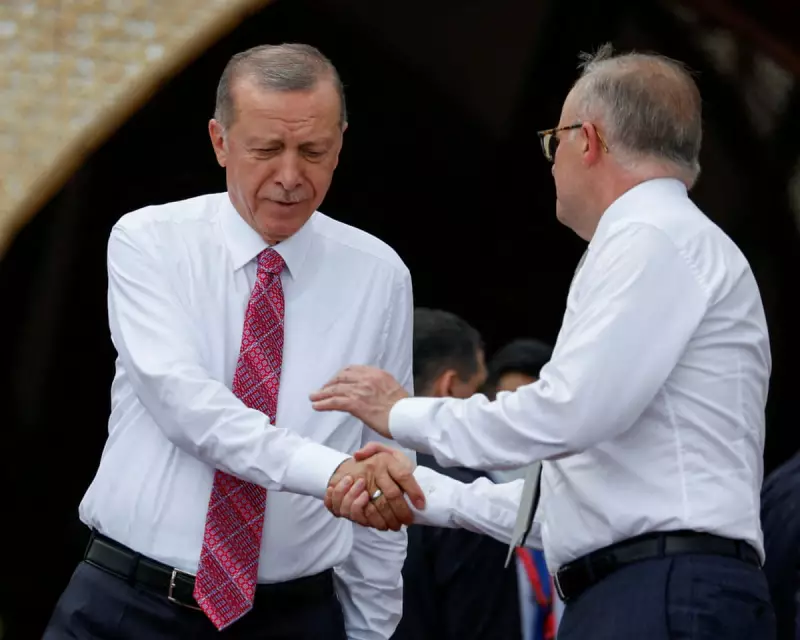
The United Nations climate conference for 2026 faces an unprecedented hosting crisis as Australia and Turkey remain deadlocked in a diplomatic standoff, with both nations refusing to withdraw their competing bids for Cop31.
The Pavilion Placement That Says It All
Delegates arriving at the Cop30 climate talks in Belém, Brazil, encountered what appeared to be a pointed message from the hosts. The pavilions for Australia and Turkey – the two nations that have been competing to host the November 2026 climate summit for over three years – were positioned directly beside each other in the convention centre.
While Brazilian officials explained this was likely due to practical considerations rather than deliberate messaging, the placement nonetheless highlighted the ongoing impasse that has frustrated climate negotiators worldwide.
Pacific Ambitions Versus Mediterranean Dreams
Australian Prime Minister Anthony Albanese revealed that Turkish President Recep Tayyip Erdoğan had written to him within the past 24 hours, confirming Turkey would "maintain his position" that the event should be held in the Mediterranean resort city of Antalya.
Albanese responded that Australia was equally committed to its proposal for a "Pacific Cop" to be co-hosted with island nations in Adelaide. "There have been Cops held in Azerbaijan, in the UAE, and in Egypt, so in that part of the world, but never one in this part of the world," Albanese emphasised, pointing out that Pacific nations like Tuvalu and Kiribati face existential threats from climate change.
The Australian leader has since reinforced his position in discussions with Palau President Surangel Whipps Jr and Papua New Guinea Prime Minister James Marape.
The UN Rules Complicating Resolution
The decision-making process within the UN system has significantly complicated resolution of the hosting dispute. Responsibility for Cop31 lies with the Western Europe and Others Group (Weog), which includes both Australia and Turkey among its 28 members.
Despite overwhelming support within Weog for the Australia-Pacific bid – with no members backing Turkey's proposal – UN rules require consensus within the group. This means someone must yield for any decision to be made.
Palau President Whipps told The Guardian that Pacific leaders had written to Erdoğan on the issue but received "no real response." He argued that "the decision should be an easy one" based on geographic equity principles and suggested Turkey stepping aside would be seen as "a significant act of good faith."
Germany's Reluctant Backup Role
If Australia and Turkey cannot reach agreement by the end of the Cop30 conference, an unprecedented default option would come into play: Germany would be obliged to host the event as the home of UN climate headquarters in Bonn.
However, German officials are actively resisting this possibility. Jochen Flasbarth, Germany's state secretary in the environment ministry, acknowledged the country might have to take on Cop31 but stated clearly: "we do not want to."
"That's why all the signals we're sending out are, for heaven's sake, get Australia and Turkey to agree so that this technical solution doesn't come into play," Flasbarth told Politico.
Compromise Proposals and Mediation Efforts
Diplomatic sources confirm that Germany, as Weog chair, has asked the British delegation to help broker a solution. The Brazilian hosts have also committed to mediating negotiations, though concerns remain that the hosting dispute could distract from substantive climate discussions.
Both countries have proposed compromises in recent weeks. Turkey reportedly suggested a shared Cop presidency between the two nations, while Australia proposed Turkey could host other meetings linked to Cop31. So far, neither proposal has broken the deadlock.
The situation contrasts sharply with the relatively smooth process for Cop32, where Ethiopia's bid to host received endorsement from the African Group of Negotiators despite competition from Nigeria.
With little progress expected before climate ministers Chris Bowen of Australia and Murat Kurum of Turkey arrive for the final stages of Cop30, the international community watches anxiously, hoping for resolution to a dispute that threatens to overshadow urgent climate action.





